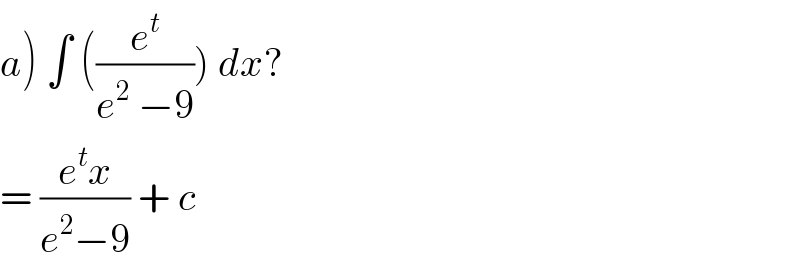
Question and Answers Forum
Question Number 88071 by ar247 last updated on 08/Apr/20

Commented by ar247 last updated on 08/Apr/20

Commented by jagoll last updated on 08/Apr/20

Commented by ar247 last updated on 08/Apr/20

Commented by john santu last updated on 08/Apr/20

Commented by ar247 last updated on 08/Apr/20

Commented by mathmax by abdo last updated on 08/Apr/20

Commented by mathmax by abdo last updated on 08/Apr/20

Answered by john santu last updated on 08/Apr/20

